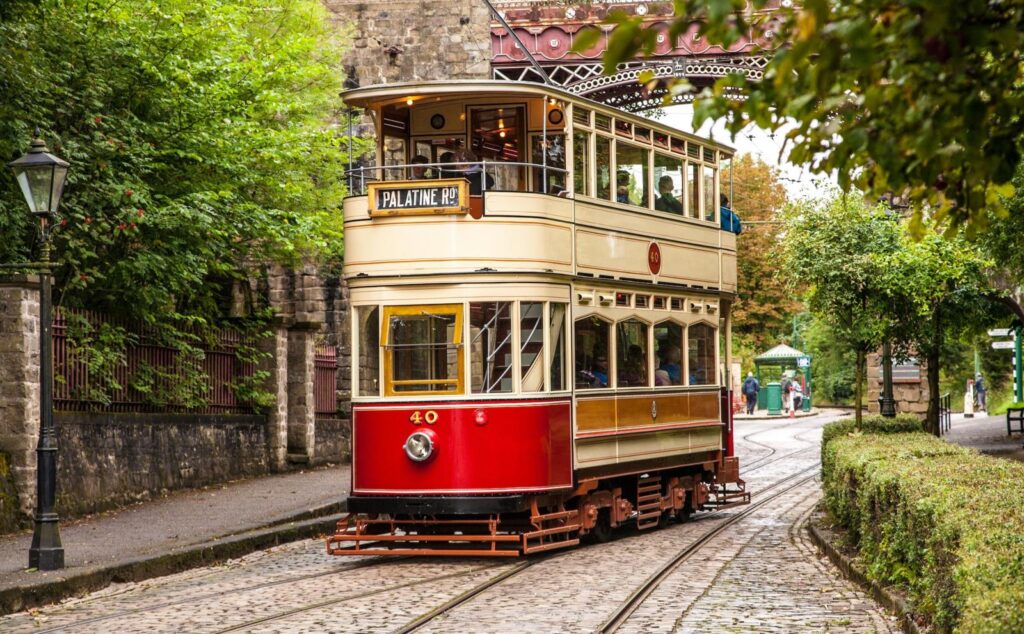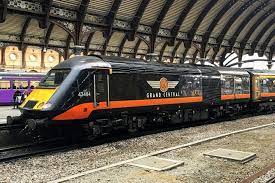
Overview
In the unlikely setting of a limestone quarry high up in the Derbyshire Peak district, is the home of the National Tramway museum at Crich. Founded in 1967, the setting has been transformed into a cityscape of the early 20th century with a Pub, Sweet shop and Ice Cream parlour. They even rebuilt the victorian Bowes Lyon iron bridge originally in Stagenhoe Park in Hertfordshire in 1971 which has become an icon for the museum.
In. the collection of 60 mainly first generation tram vehicles, these were acquired in the 20 years following the second world war, as British cities changed to more flexible motor busses . You can revisit a lost era in the Tram depot where many have been carefully restored to their original condition. Between 2 and 4 are chosen each day to give visitor a 20 minute ride to Glory Mine, choose the top deck if you can!
How to get there
Crich Tramway Village set in the spectacular Peak District is a day trip from London to Matlock with a change at Derby. At Matlock there are 4 busses a day taking 35 mins except Sundays or pre book with Matlock taxis for the 15 minute ride. For the more adventurous the nearest station is Whatstandwell a one mile steep uphill hike along quiet lanes. This takes you up from the Derwent river valley with great views of drystone wall fields typical of the Peak District.
The museum is normally open Saturdays to Thursdays from 10 am to 5.30 pm from Easter to the end of October.
Why not combine your visit with one to a nearby steam railway? At Matlock station is the Peak Rail from Matlock to Rowsley South, currently the only boarding points due to COVid 19. At Duffield on the Matlock branch is the Ecclesbourne valley railway to Wirksworth also currently running a modified service
Open Access UK train operators

With the arrival of Lockdown No 3 in early 2021, train services in the UK were reduced to 72% it was reported in the Guardian in January 2021. The 2 UK open access operators Grand Central and Hull trains have now resumed services on 1st March and 12th April 2021 respectively. Eurostar, the open access operator of international trains to Europe operated just one train a day during lockdown, since 28th June operate 3 trains per day to Paris, 1 train per day to Brussels and Amsterdam.
Unlike the franchised operators, they do not receive any government assistance. Eurostar was saved in May 2021 by a £250 million refinancing package led by the French government. As it doesn’t expect to operate a full service before 2025, it is questionable whether this amount will see them through! Both Grand Central and Hull trains have spent spells in ‘hibernation’ during periods of lockdown since March 2020.
Should the government take a more active role?
Should we encourage the creation of more open access operators?

